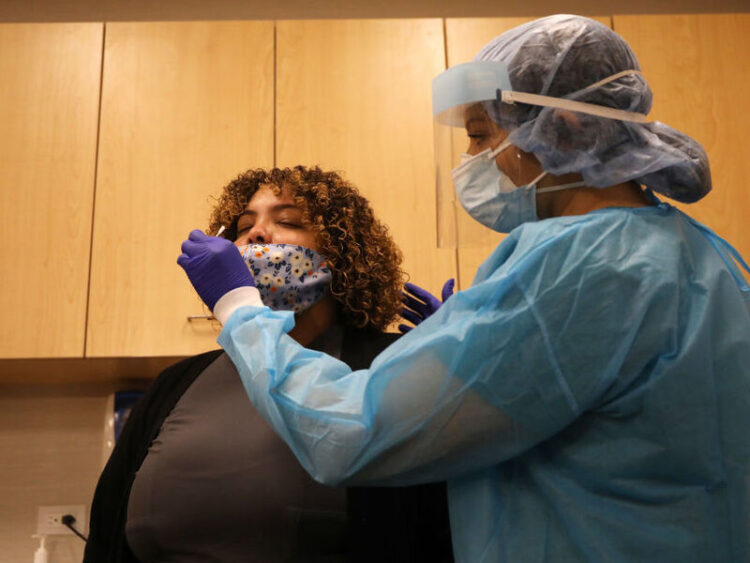By Charlotte Webster-
A group of researchers have warned that half of all colds this winter will be the omicron variant of covid but they will have a hard time convincing the British public.
The Zoe Covid study team has been tracking the pandemic using feedback from the general public, and estimates half of people with cold-like symptoms actually have Covid.
The studies published on Wednesday based on UK hospital data, suggested the variant is significantly milder than Delta but it can still cause serious illness in some people.
Research suggests that most of the British public, particularly among the younger population, do not distinguish covid from the common flu, and believe them to be practically the same thing.
A large percentage also believe that many cases of ordinary flu will be registered as covid.
However, covid is distinctly different from a cold in terms of the virus and its potential effects
Lead scientist Professor Tim Spector has urged anyone with cold-like symptoms to take a test.
“The number of new symptomatic cases has exploded over the last week,” he said.
“For most people, an Omicron positive case will feel much more like the common cold, starting with a sore throat, runny nose and a headache.
“You only need to ask a friend who has recently tested positive to find this out. We need to change public messaging urgently to save lives.”
The UK reported a record daily number of Covid infections on Wednesday, with 106,122 new cases.
In London, about one in 30 people was likely to test positive in the week to December 16 — the highest proportion for any region.
The Zoe app calculated the figures by comparing the number of new cases of a cold-like illness to the number of new cases of confirmed Covid.
Professor Spector also said to slow the spread of Omicron the public should avoid socialising indoors, check people they are meeting are free of cold symptoms, test before meeting up and get fully vaccinated.
He added: “While the figures paint a worrying picture, the good news is that our preliminary data, based on around 2,500 probable cases reported on the Zoe app suggests that Omicron is more mild that Delta.”
About 144,000 people a day are catching it and then feeling unwell.
For most, Covid is a mild disease. Some get no symptoms at all.
But it can still cause very serious illness in some people, including those who have not been vaccinated.
If you have cold-like symptoms, take a Covid test, says lead scientist Prof Tim Spector.
“The number of new symptomatic cases has exploded over the last week,” he said.
“For most people, an Omicron positive case will feel much more like the common cold, starting with a sore throat, runny nose and a headache. You only need to ask a friend who has recently tested positive to find this out.
“We need to change public messaging urgently to save lives.”
The UK reported 106,122 new Covid cases on Wednesday – exceeding 100,000 on a single day for the first time.
With infections doubling every two to three days, experts say, health officials are concerned about the pressure this could put on the NHS.
Preliminary studies suggest the Omicron coronavirus variant is milder, with fewer people getting severely ill than with other variants.
But a massive wave of infections would still mean many people needing hospital care, as well as lots of doctors and nurses being off sick with Covid.
People are being advised to do rapid Covid tests before meeting up with friends and family at Christmas.
Lateral flow tests help to find cases in people who may have no symptoms but are still infectious, meaning they can give the virus to others.
Latest estimates suggest that more than 1.3 million people in the UK would have tested positive for coronavirus in the week ending 16 December. This is the highest level of infections recorded by the Office for National Statistics (ONS) since the survey started.
The ONS say the trends for estimated Covid-19 infections increased in England and Scotland, and were uncertain in Wales and Northern Ireland.

